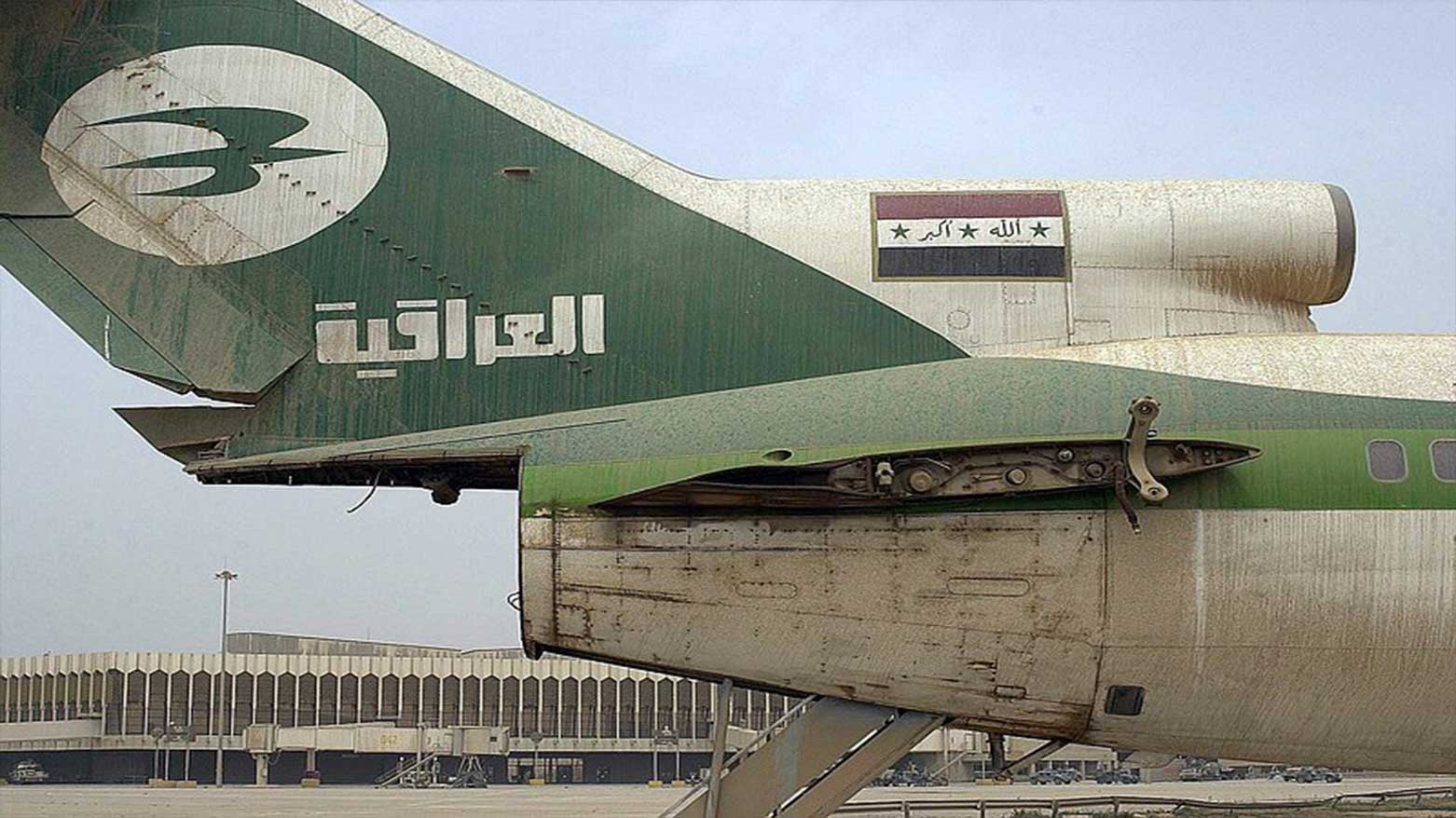Iraqi Airways' European Ban Persists Amid Safety Concerns
Iraq's corrective plan is only 56% complete—insufficient to lift the European ban.

ERBIL (Kurdistan24) – The European Union has once again refused to lift its long-standing airspace ban on Iraqi Airways, citing the airline’s continued failure to meet international safety and operational standards. Despite repeated assurances from Iraq’s Ministry of Transport and Iraqi Airways about ongoing reforms, European aviation authorities remain unconvinced, leaving Iraq’s national carrier grounded outside European skies.
The Ministry of Transport announced on Thursday that Iraq aims to fulfill the requirements of the IATA Operational Safety Audit (IOSA) program by 2025, a crucial step toward lifting the European ban. Additionally, the ministry is working toward obtaining the Third Country Operator (TCO) certification. However, despite these efforts, no positive signals have emerged from European authorities, prolonging the embargo that has significantly hampered the airline’s operations.
In its statement, the ministry acknowledged that although it is adhering to a set timeline for these reforms, multiple challenges persist—most notably, the European Union’s continued reluctance to recognize Iraq’s claimed progress. The ban, initially imposed due to grave concerns over safety standards and regulatory non-compliance, remains firmly in place, limiting Iraqi Airways’ expansion and further crippling its ability to compete with international carriers.
Decaying Fleet and Unprofessional Operations
Iraqi Airways, once a promising regional airline, has long struggled with outdated aircraft, inefficient management, and subpar safety procedures. The airline’s fleet consists of aging planes, many of which frequently suffer mechanical failures, further raising concerns about passenger safety. Even as the ministry claims efforts are underway to unify aircraft models and restore out-of-service planes, financial and administrative hurdles continue to slow progress.
Beyond aircraft issues, Iraq’s airports suffer from serious deficiencies. Baghdad International Airport, the country's primary hub, lacks the infrastructure and technological advancements seen in regional competitors. Many of Iraq’s airports are ill-equipped to handle modern aviation demands, with poor maintenance, inadequate facilities, and inefficient operational procedures making travel a frustrating experience for passengers.
Security and check-in procedures at Iraqi airports are another area of major concern. Passengers frequently report chaotic, inconsistent, and excessively time-consuming security screenings, raising doubts about whether Iraq can ever meet the rigorous aviation standards required by European regulators. Despite the ministry’s claims of quality system improvements, European aviation bodies remain skeptical, asserting that Iraq has failed to demonstrate tangible, lasting reforms.
European Authorities Stand Firm
Even as Iraq’s leadership attempts to shift the blame onto European bureaucracy, the reality remains clear: Iraq has consistently fallen short of internationally accepted aviation standards. The EU ban was not imposed arbitrarily but rather as a direct consequence of the airline’s history of safety violations, mismanagement, and lack of adherence to international regulatory norms.
Recent talks between Iraq’s Prime Minister and the Vice President of the International Air Transport Association (IATA) revealed that only 56% of Iraq’s corrective action plan has been completed—far from sufficient to convince European authorities to reconsider the ban. The slow progress and ongoing safety concerns make it evident that Iraq has a long way to go before reclaiming access to European airspace.
A Legacy of Aviation Shortcomings
The EU first imposed the ban on Iraqi Airways in 2015, citing serious safety concerns and non-compliance with international aviation regulations. Since then, Iraq has repeatedly promised improvements but has consistently failed to meet the benchmarks necessary for lifting the restriction.
While neighboring countries have successfully upgraded their aviation industries to meet international standards, Iraq’s aviation sector remains mired in inefficiency, corruption, and technical shortcomings. As a result, Iraqi travelers must continue relying on foreign airlines for flights to and from Europe, further highlighting the national carrier’s declining role in global aviation.
Erbil International Airport: A Model of Modern Aviation in Iraq
In stark contrast, Erbil International Airport (EIA) in the Kurdistan Region exemplifies modernity and professionalism. Established in 2003 and expanded in 2010, EIA offers world-class facilities and services, operating 24/7 with flights to 21 cities through partnerships with 18 air carriers, including reputable airlines like Austrian Airlines and Royal Jordanian.
The airport features a modern terminal for commercial flights to and from the Middle East and Europe, with facilities including shops and eateries open 24 hours.
In 2024, EIA welcomed over 2 million passengers, reflecting its growing connectivity and capacity to serve both regional and international travelers effectively.
This level of infrastructure and service quality starkly contrasts with the outdated facilities and unprofessional operations observed at airports in Baghdad and other Iraqi cities, further justifying European authorities' stance on maintaining the ban on Iraqi Airways.
Until Iraq implements real, demonstrable changes that align with international safety standards, the European ban is unlikely to be lifted. The onus remains on the Iraqi government and its national airline to take the necessary steps—rather than simply issuing statements of intent—if they hope to regain the trust of global aviation authorities.
